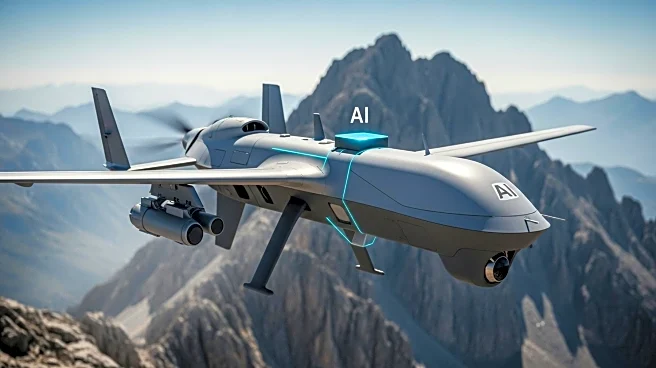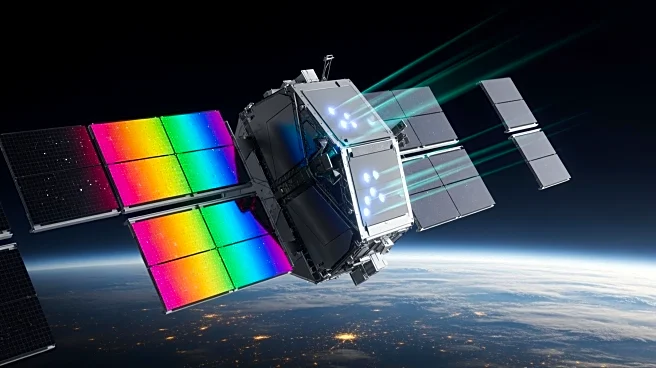What's Happening?
The Indian Army is advancing its combat capabilities by integrating artificial intelligence (AI) technologies into its warfare infrastructure. According to Lt Gen Rajiv Kumar Sahni, the director general of electronics and mechanical engineers, the army is developing an indigenous AI platform that will unify operational, intelligence, logistics, and training applications. This initiative aims to improve decision-making, reduce risks to personnel, and enhance the durability of operations. The army's focus includes establishing a robust testing and ethical governance framework to ensure the reliability and transparency of AI-driven operations. Key initiatives include the Electronic Intelligence Collation and Analysis System, which prioritizes critical threats, and the Trinetra system, which provides a common operational picture for better coordination and situational awareness.
Why It's Important?
The integration of AI technologies into the Indian Army's operations signifies a significant shift towards a more technologically advanced military force. This development is crucial for maintaining strategic dominance and enhancing national security. By adopting AI, the army aims to improve its operational efficiency and decision-making capabilities, which are vital in modern warfare. The use of AI in predictive threat modeling and battlefield logistics can lead to faster and more precise deployment of assets, thereby strengthening the army's ability to respond to threats effectively. This move also aligns with the broader vision of transforming the Indian Army into a future-ready force, capable of addressing evolving security challenges.
What's Next?
The Indian Army is expected to continue its efforts in integrating AI technologies across various domains. This includes further development and refinement of AI applications to enhance operational capabilities. The army's focus on ethical governance and testing frameworks suggests ongoing evaluations to ensure the responsible use of AI. As these technologies are implemented, the army may also engage with other stakeholders, including intelligence agencies, to adapt and customize AI solutions for specific needs. The successful integration of AI could serve as a model for other military forces globally, potentially influencing international defense strategies.
Beyond the Headlines
The adoption of AI in military operations raises important ethical and legal considerations. Ensuring transparency and accountability in AI-driven decisions is crucial to maintaining trust and avoiding unintended consequences. The Indian Army's emphasis on ethical governance frameworks highlights the importance of addressing these concerns. Additionally, the integration of AI could lead to shifts in military training and personnel requirements, as new skills and expertise become necessary to operate advanced technologies. This transformation may also impact defense policies and international relations, as countries adapt to the changing landscape of warfare.










